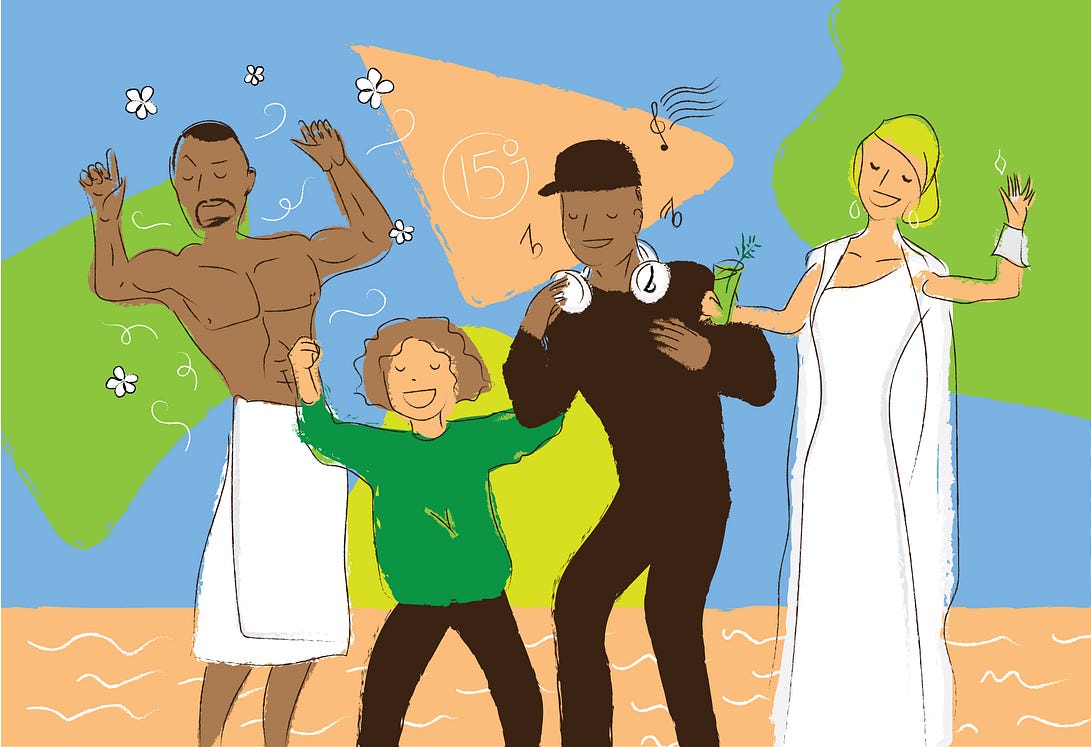BFF: Brand Fan Forever

by Lauren Wisbeski, Copywriter, Fifteen Degrees
Mar. 27
Have you heard of Goop by Gwyneth Paltrow or The Honest Company by Jessica Alba? How about Beats by Dr. Dre or The Row by Mary-Kate and Ashley Olsen? Have you ever thought about how celebrities so confidently become business owners? The answer may be because their brands have already been developed, and there’s little work to be done in establishing a trademark. When everybody already knows who you are, it won’t matter what your product actually contributes to consumers’ lives — just whether it integrates into their lifestyle. When people think of a brand, they immediately think of the personality associated with it.
I’m intrigued by the idea that brands are automatically personified. Just as you wouldn’t let a strange person into your life without getting a sense for them first, you wouldn’t affix yourself to a brand you couldn’t relate to or felt uncomfortable around.
Getting acquainted with a brand is different from familiarizing yourself with a person, but whether you’re aware of it in the moment or not, the fundamental question is the same: what do we have in common?
Brands have their own personalities, which agencies create based on the information strategists provide. All narratives are developed so that the brand resonates with its target. The more a consumer can connect with and care about a brand, the greater the brand’s likeability, and the higher the chance the consumer will select it over its competition when making her purchase. Once a brand has developed a consistent narrative and tone, it begins to establish trust between itself and consumers, which will only grow as further advertising strengthens the messaging.
What should brands communicate to consumers to create a sentimental attachment? Based on the kind of product or service the brand provides, it should illustrate its emotional perks and how they correlate to consumers’ motivations; emphasize the ways its personality matches consumers’; and underscore its high levels of genuineness and perpetuity, which nurture feelings of trust and security within the audience. Some of the most well known brands have accomplished this, including IKEA, Subaru, Old Spice and Apple.
Apple advertising has permeated a few different genres over the years to establish itself as a character in our society. It’s fascinating to analyze some of its most famous advertisements to determine how it cultivated the personality we know today — a friend who’s reliable, funny, idealistic, witty…
- Inspirational/Touching: Internet, Dillan’s Voice
- Speculative: 1984 Macintosh Computer
- Trustworthy: 1983 Apple Lisa Computer
- Comedic: Dinosaurs, 3 Steps
- Satirical: Mac vs. Ordinary PC
- Able to Withstand the Test of Time: Bulbs
Although Think Different wasn’t produced until the 1990s, it’s the prominent advertisement for Apple. While society may have gotten an idea for the brand prior to this critical spot, Think Different is arguably what cemented Apple in our culture forever.
In terms of Fifteen Degrees’ work in creating brand personalities, check out Switch the Squirrel, the quintessential Ridgewood Savings Bank customer who exemplifies the benefits and convenience of banking with Ridgewood. With Switch as a brand ambassador, Ridgewood presents itself as a friendly, fun and rewarding bank. Switch adds personality to Ridgewood, increasing the brand’s likeability among a younger crowd.
A brand needs to personify itself to a point at which consumers trust it, are interested in it and feel that it’s necessary in their lives. It needs to become a friend. If the brand belongs to a celebrity, that personality will chart the course for future advertising. If the brand is a startup without a famous individual serving as the ambassador, making the brand a known presence in our social discourse is a project an agency will need to start from scratch, which is exciting.